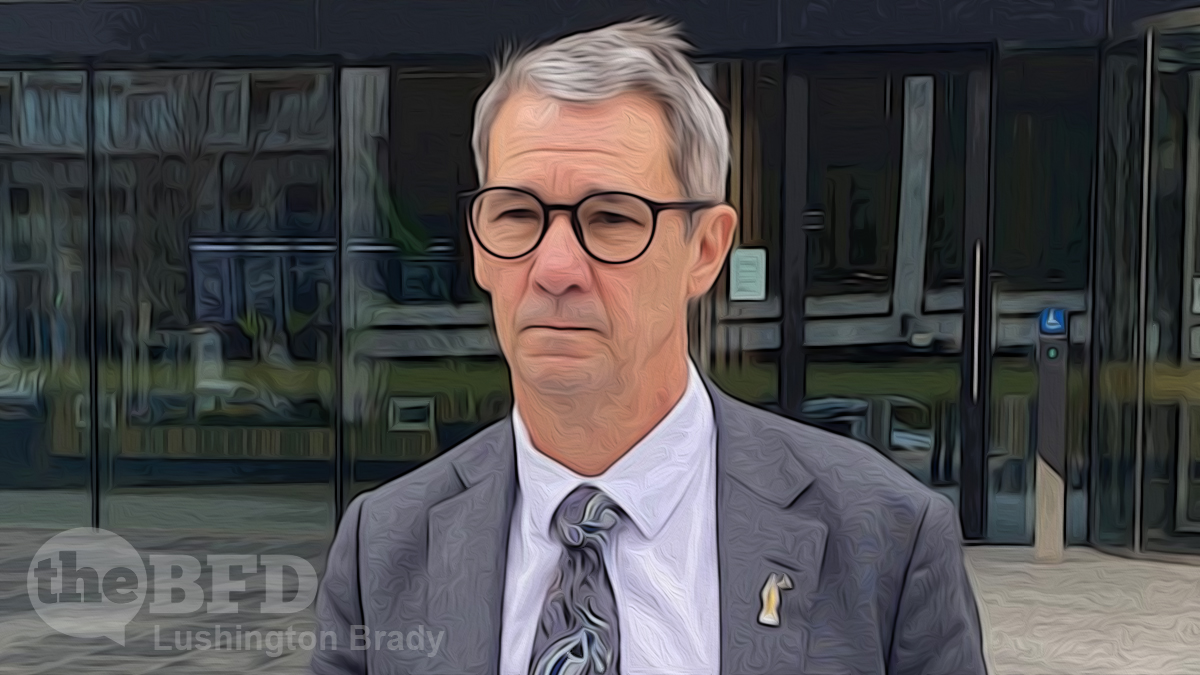Opinion
The most instructive way to get to Australia’s capital is by road. Sure, air travel is more convenient, as evidenced by the flocks of government-chartered planes scurrying out on a Friday night, but there’s something you notice, on the road. But the Australian Capital Territory is so small that it only takes 20 minutes to get from the border to the Canberra CBD.
The countryside doesn’t change at all, but there’s something you notice the instant you cross from New South Wales to the ACT: the roads. The roads in the ACT are immaculate.
The public service class knows how to look after itself, after all. Not unlike Wellington, Canberra is dense with upmarket cafes, restaurants and bars clustered close around Parliament House.
We don’t call it the “Canberra Bubble” for nothing.
“Only in the ACT” is becoming an unfortunate phenomenon in this country. Weird things happen in the Labor-Greens run territory. Only in the ACT would a corruption commission investigate not the chief prosecutor whose misconduct has now been confirmed by two judges in separate forums but the man who uncovered the wrongdoing.
And only in the ACT would the supposed cream of the legal fraternity obsessively pursue a heavily politicised, alleged rape case that they were warned had little to no hope of securing a successful prosecution, while sweeping under the carpet an unambiguous child abuse case.
This week’s news that the office of the Director of Public Prosecutions stuffed up another major criminal case – this time involving convicted child sex offender Stephen Mitchell – should be the last straw for those concerned with the administration of the justice system in the ACT.
Mitchell worked for the Australian Institute of Sport and was a coach for budding elite rock-climbers. It was in that capacity that he systematically groomed and abused at least six girls in their pre- and early teens. Ironically, at least one of them had earlier quit the AIS because of its abusive culture.
It took nearly 30 years to bring Mitchell to account for his crimes — and then the ACT legal establishment dropped the ball yet again.
Prosecutors told three child victims that Mitchell faced a maximum prison sentence of 25 years, and that if they accepted the plea deal then he would spend a very long time in prison for the crimes he committed against them as children. In fact, the victims should have been told that Mitchell faced a seven-year maximum sentence – the law at the time of offending.
Had two of these women – Sophie Vivian and Odette Visser – known the truth, they would not have walked away from insisting Mitchell be prosecuted for the most serious charges of sexual penetration.
Vivian says that there “was a lot of pressure placed on us by the prosecutors to accept those plea deals”. The same prosecutors, meanwhile, were monomaniacally pursuing the shaky rape allegation by Brittany Higgins against Bruce Lehrmann.
So, one dodgy case which nonetheless had the potential to bring down a conservative government in the overwhelmingly left-wing ACT, or the chance to put a child molester behind bars for as long as possible. Decisions, decisions.
Prosecutors knew about the correct application of the sentencing laws in May 2022. They negotiated the plea deal with Mitchell in November 2002. This six-month period between May and November 2022 fell squarely within the chaos of the Lehrmann trial. As Visser told The Australian, “It doesn’t take a genius to figure out what they were more distracted with. And six child victims were put on the backburner again.”
Vivian is equally forthright: “The problem was an utterly dysfunctional office led by a distracted – and now disgraced – director.”
That director is former ACT Director of Public Prosecutions, Shane Drumgold. “Former”, because he was forced to resign in disgrace over his conduct in the Lehrmann-Higgins case.
Given the seriousness of Drumgold’s misconduct, ACT citizens – and everyone forced to endure this spectacle – deserve to know whether one prosecutor went rogue, undermining the fair trial of Lehrmann. Or is it bigger?
In other words, is there a deeper cultural problem with the prosecuting arm of the ACT criminal justice system? If so, what are they? Incompetence? An overzealousness to pursue cases that should not reach a courtroom that in turn distracts from serious cases?
Drumgold’s disastrous time at the ODPP has left too many unanswered questions.
The Australian
Don’t expect answers, though. In true Canberra fashion, its Labor-Green government is not only ignoring yet more evidence of gross negligence — to put it kindly — at the top echelons of its justice system, it’s vigorously pursuing one of the few people to expose it.
Instead of investigating the failures in its own ranks, the ACT Integrity Commission is pursuing allegations against Walter Sofronoff, who presided over the inquiry into the prosecution of Bruce Lehrmann.
Sofronoff’s inquiry was already assessed by an independent legal authority, which upheld all bar one of its findings against Drumgold. But the ACT government tried to keep the inquiry report secret for over a month. Even after Sofronoff leaked it, the Barr government still kept it under wraps for days.
Now, they’re going after the messenger, guns blazing.
Only in the ACT, indeed.

